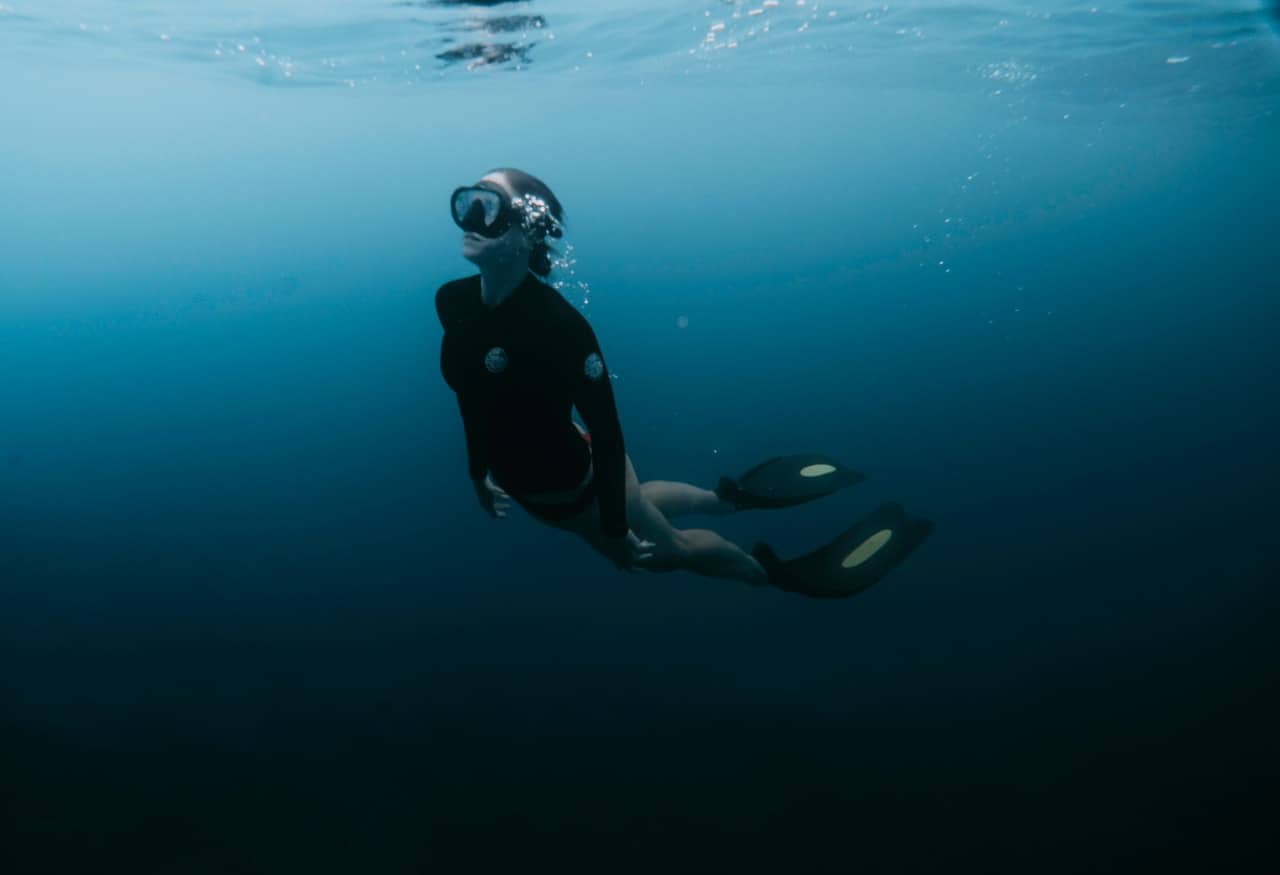AFTER they take the plunge, virgins to the underwater world usually decide that diving is something they want more of. Learning to dive is not nearly as difficult as many people perceive it to be.
Chances are, if you can drive, you will find diving even simpler. Even kids can do it. The fact that you can get certified to dive years earlier than you can drive shows that scuba is not so complicated. As far as the dangers involved, you are far more likely to have a problem driving to the dive site than diving it.
While it may be hard to believe, in many ways snorkel diving is more difficult than scuba diving. During a normal scuba dive there is no water in your mouth and you do not need to hold your breath, return to the surface or clear a snorkel.
EVERYONE starts shallow and ventures deeper with more skills and confidence.
The fear factor is low when mastering the use of a scuba rig in water you can stand up in. The breathing technique at one foot is no different than at one hundred – you just breath normally.
Normally, because that tank on your back is full of air, not oxygen, as many landlubbers believe. Air has some oxygen, but it is mostly nitrogen with a tiny bit of carbon dioxide and whatever pollutants the winds blow to the area. Properly maintained dive compressors contain special filters, so the air in your tank is probably cleaner than the air outside.
According to the Profesional Association of Diving Instructors (PADI), the world’s leading training agency, a properly trained 8-year-old on scuba may descend six feet deep in confined water. A certified 18-year-old may drop to 130 feet in open water. Other agencies will train you to drop deeper still, although this becomes technical diving and is no longer considered recreational. The first time is normally in three or four feet of water. Many people start with resort courses.
After running though basic skills in pool-like conditions, you head out with an instructor every time.
The scuba diving certification course is fun, easy and takes only a few days or a couple of weekends to complete.
Certification will allow you to penetrate deeper into the underwater world and give you the confidence to feel safe without the help of a dive master or instructor.
Before long, you just might be rounding up friends, gear and a boat and thinking about dive-master certification for yourself.
THE beaches of the Gandoca Manzanillo National Wildlife Refuge and CahuitaNational Park on the Caribbean and the protected coves of Guanacaste’s Pacific coast offer the best conditions for virgin dives in Costa Rica.
Other places, such as Caño and Cocos islands, often produce strong currents and surge that are better left to veteran scuba divers. Advanced certification will help you prepare for these offshore sites when you’re ready. That might come sooner than you think.






